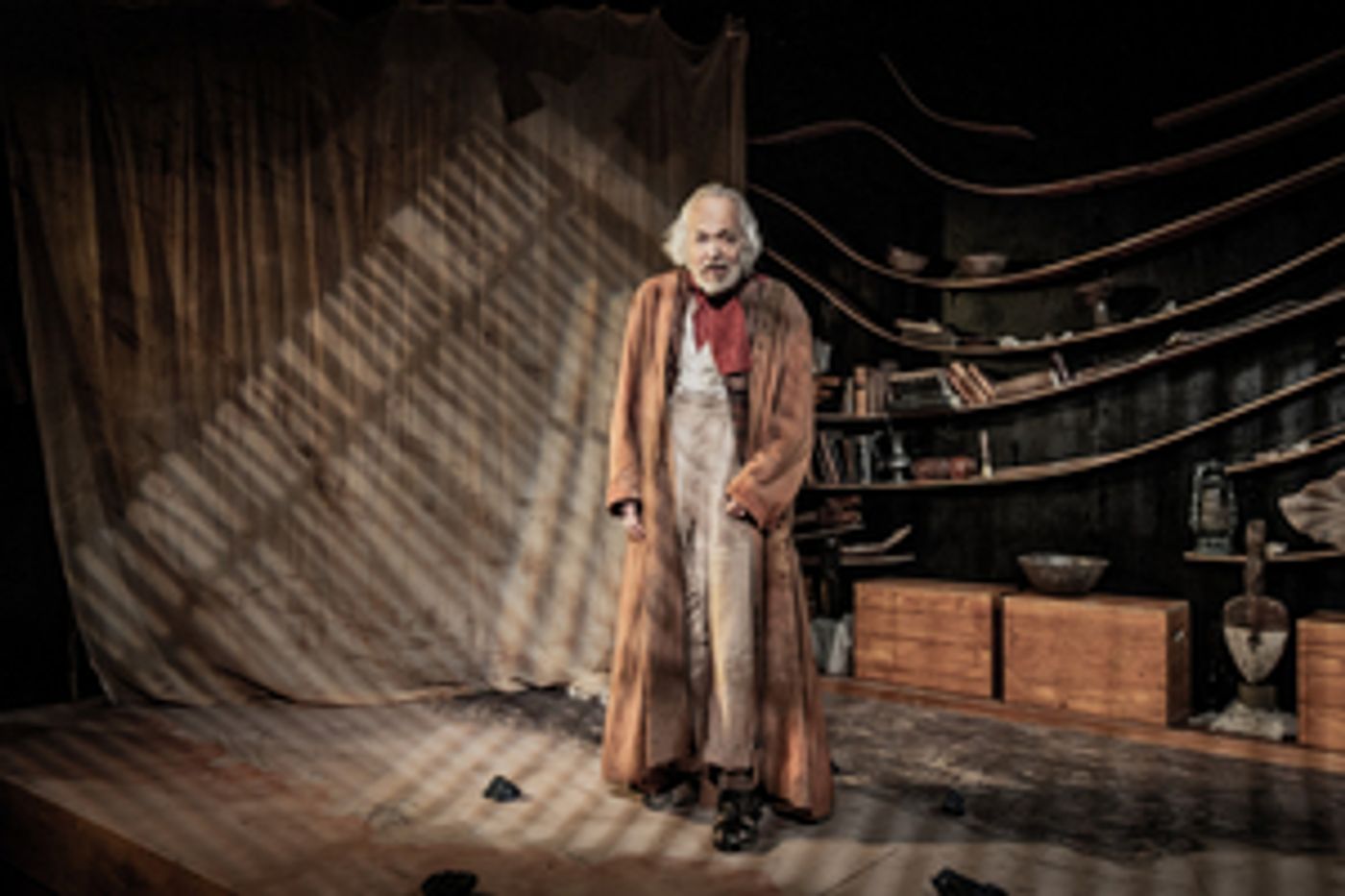Review: THE TEMPEST, Jermyn Street Theatre

![]() William Shakespeare's swansong lands on Jermyn Street Theatre's tiny stage in fetching fashion. Traditionally a grand spectacle, Tom Littler transforms The Tempest into boutique theatre at its finest. Shakespearean veteran Michael Pennington leads as Prospero, and the result is a myth-imbued and aesthetically exquisite show.
William Shakespeare's swansong lands on Jermyn Street Theatre's tiny stage in fetching fashion. Traditionally a grand spectacle, Tom Littler transforms The Tempest into boutique theatre at its finest. Shakespearean veteran Michael Pennington leads as Prospero, and the result is a myth-imbued and aesthetically exquisite show.
Around 12 years before the play begins, the rightful Duke of Milan Prospero and his three-year-old daughter Miranda were left to die on a rotten boat by his usurper brother Antonio. They found shelter on a small remote island, where he became a sorcerer. Now, he is living with his daughter, now a young woman, the spirit Ariel, and the monster Caliban, his servant. When his old foe passes by on a ship, he decides to stir a storm and shipwreck him so he can exact his revenge.
The director sketches faraway shores, foreign cultures, and that specific warm hue that belongs to seaside villages with Neil Irish and Annett Black's set. Curved shelves that mimic sea waves host an amalgamation of books, knick-knacks, ornamental objects, and pagan iconography. Whiffs of Paul Gauguin's Tahitian time appear throughout with the design, an artistic choice that grounds the story in its exotic nature.
The defined colour palette is cemented by William Reynolds' expressive lighting design. Through the subtle changes in tone and sharpness, he adds another visual emotional layer to the full picture as Littler focuses the themes on the personal history of the characters, strengthening the family bonds between them. Miranda's especially friendly and public displays of affection become in direct opposition to the unfortunate visitors' rather tepid physical approach.
Pennington is a colossal Prospero. He stands strong in his stance, but a certain weakness pervades all his movements. He introduces a pensive and severe sorcerer, aware of his contradictions while he clutches at every string of power he can. While he refuses to free Caliban and Ariel, he is a humanitarian at heart, just and fair even in his vengeance.
The actor is joined by Kirsty Bushell as an open-hearted Miranda. Her exchanges with Tam Williams' Ferdinand are cute in their naivety and her attitude to finally meeting other people after a lifetime of isolation is pure and loving. Littler's double-casting decisions see Williams taking on the role of Caliban - a disfigured, bruised, and quite unsightly creature - as well as the handsome heir to the Neapolitan throne. This installs a compelling paradigm between the two, notably pre-and-post interval.
Littler leaves the first act with the image of Caliban's hands being untied by Richard Derrington's Stephano (who also plays Antonio) and opens the second with Ferdinand's bound wrists. Peter Bramhill flanks Derrington as Sebastian and Trinculo, and the duo become the main, thoroughly delectable, comedic relief throughout the show.
Whitney Kehinde is an exciting and excitable Ariel. Eager to be freed, she complies with Prospero's requests with palpable enthusiasm, an acting style that could be compared to Bushell's Miranda and influences the perception of the two characters in relation to Prospero. The directorial touch of choosing Lynn Farleigh as Gonzalo kick-starts a game of conjectures and alters the dynamic on the base of the few exchanges with Prospero towards the end.
An enchanting, disarming, and preciously detailed piece of theatre, Littler's The Tempest takes the limitations of the space and turns them in its favour. Subtle storytelling and self-referential layering click together with bare theatrical stagecraft on their exceptionally intimate stage. The director removes whatever elitist distance there still is between Shakespeare and modern audiences, manifesting an artful and exceptionally human tale that looks and sounds magical.
The Tempest runs at Jermyn Street Theatre until 4 April.
Image courtesy of Robert Workman
Reader Reviews
Videos

